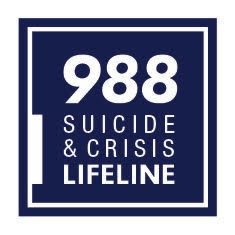How to Respond When Your Child’s School Alerts You About Their Suicidal Thoughts

Many school systems have begun to work with students on understanding their emotional needs, which includes talking about suicide. According to the CDC, “Suicide was the second leading cause of death for people ages 10-14 and 20-34” in 2021. In addition, “A report from the Centers for Disease Control and Prevention (CDC) looking at mental health and suicidal behaviors from 2011 to 2021 indicates that 13% of high school girls had attempted suicide (30% had seriously considered it)”.
These are alarming statistics. It’s even more alarming when, as a parent, you receive a phone call from your child’s school that they are having thoughts about suicide. This can seem like one of those things that happens to other people, not to your child and your family. You may be confused and wonder what could have caused this. You may be scared, angry, worried, or any combination of emotions. So what do you do with this? What happens next? How do you handle this?
Every school will have their own policy, but typically they will ask you to pick up your child from school and have your child complete a suicide risk assessment by a mental health professional. This can happen either in a hospital setting, in an outpatient counseling setting, or even in your home through services like the Georgia Crisis and Access Line. The results of the assessment will provide you with recommendations for next steps ranging from least restrictive (monitoring, following a plan to ensure safety in home, and possibly beginning psychotherapy) to most restrictive (short-term crisis hospitalization to ensure safety).
As a parent, you may wonder how you can help your child in a situation that can leave both of you feeling very helpless.
- Stay calm and monitor your own emotional responses. Often parents wonder what could cause these feelings in their child, especially when it seems as though, “they have nothing to be sad about.” Check in with yourself about if you are feeling scared, worried, surprised, etc. and consider how those emotions present themselves to your child. Often, many children and teens report that their parents become angry at them for expressing their suicidal thoughts, when the reality is that the parent is worried for their child.
- Follow the recommendations of the crisis assessment. This may mean hospitalization, but typically does not. You may need to talk to your child’s pediatrician about a referral to see a psychiatrist about medication management or have your child begin therapy.
- Follow the safety plan. This may include moving knives, firearms, or medications out of your child’s reach. This may mean not leaving your child alone for a designated time period. This should be determined with the crisis assessor.
- Know how to advocate for your child. Don’t be afraid to ask questions of the professionals working with your child. More than anything though, don’t be afraid to ask your child questions.
- Talk to your child. This one may seem obvious, but it is mentioned because often well-meaning parents shy away from talking to their child about their suicidal thoughts. Many parents worry that if they ask their children if they are having thoughts about suicide, that it will cause them to have those thoughts – this is a myth that has been disproven. If a child is having thoughts about suicide, this instead allows the opportunity for the child to talk to their parent but does not put the idea in their head. Ask your child how you can support them. Show vulnerability and model that it’s okay to talk about emotions, by talking about your own. Check in with them to see exactly what they need from you.
- Continue to monitor your emotional responses and seek therapy for yourself if needed. This can be a scary time and it’s okay to get help for yourself if need. Caring for a loved one with mental or emotional health needs can be challenging and it’s important for you to care for yourself as well.
Need help? Know someone who does?
Contact the 988 Suicide and Crisis Lifeline if you are experiencing mental health-related distress or are worried about a loved one who may need crisis support.
Call or text 988
Chat at 988lifeline.org
Connect with a trained crisis counselor. 988 is confidential, free, and available 24/7/365.
Visit the 988 Suicide and Crisis Lifeline for more information at 988lifeline.org.
References:
https://www.cdc.gov/suicide/facts/index.html
https://www.apa.org/monitor/2023/07/psychologists-preventing-teen-suicide
https://www.georgiacollaborative.com/providers/georgia-crisis-and-access-line-gcal/



